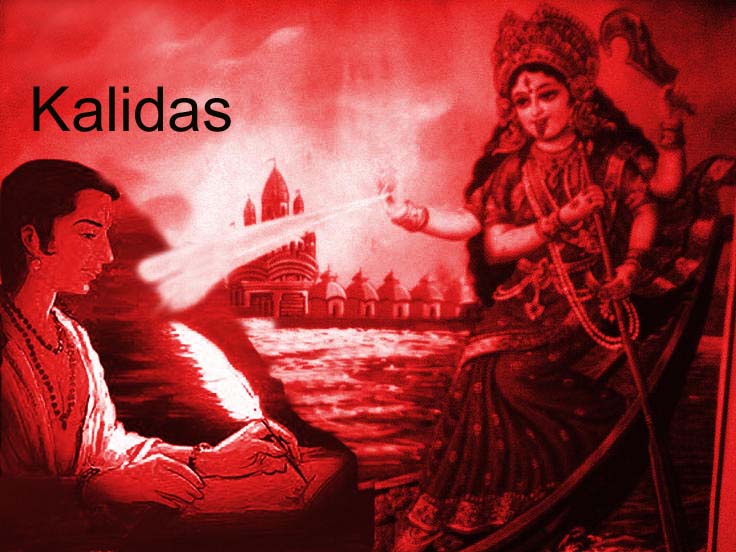In a time long ago, during the era of Chandragupta Maurya, there lived a man named Kalidasa. His very name meant a devotee of Kali, the Goddess of time, change, and destruction. Legends say that Kalidasa, in his previous lifetimes, ardently worshipped Kali, but she seemingly remained elusive.
Several lifetimes of devotion left Kalidasa disheartened in his previous incarnation. Despite his unwavering commitment, Kali did not reveal herself, leaving him disappointed. In his subsequent life, born with a different name, he manifested as a simpleton with a mind that mirrored that of an eight-year-old.
As he matured, his childlike intellect drew ridicule from the villagers. What was endearing at a young age turned scornful as he approached adulthood. The local king, facing political turmoil due to his daughter’s insistence on marrying an intelligent man, decided to marry her off to the village fool.
This decision, born out of frustration, set the stage for an unusual union. The king ordered his men to find the most foolish man in the kingdom. They discovered Kalidasa, now perceived as the village fool, cutting the very branch on which he sat. Convinced of his idiocy, they forced the marriage between Kalidasa and the king’s daughter.
The princess, known for her sharp tongue, made it her daily mission to insult and revile Kalidasa in every possible way. Unable to endure her verbal assaults any longer, he fled to the forest, seeking refuge in an old Kali temple.
In a twist of fate, Kalidasa, attempting to escape one woman, found himself at the feet of another. With no knowledge of prayers or chants, he resorted to banging his head against the temple floor, his desperation evident in the blood that trickled down.
Locked inside the temple, fearing the return of soldiers, Kalidasa heard a voice claiming to be Kali. Initially skeptical and enraged, he refused to open the door. However, as Kali persistently called out to him, he relented, if only to taunt her. Opening the door a crack, he stuck out his tongue in defiance.
In a moment of divine intervention, Kali struck his tongue, and a miraculous transformation unfolded. The man deemed the kingdom’s greatest fool suddenly became a literary genius. Kalidasa, now endowed with an exuberance of linguistic prowess, composed verses and literature effortlessly.
Despite the embellishments that often accompany ancient tales, the essence lies not in factual accuracy but in the spirit of the story. Kalidasa’s journey, from perceived fool to literary luminary, serves as a reminder that transformation can arise from the most unexpected places and circumstances.





